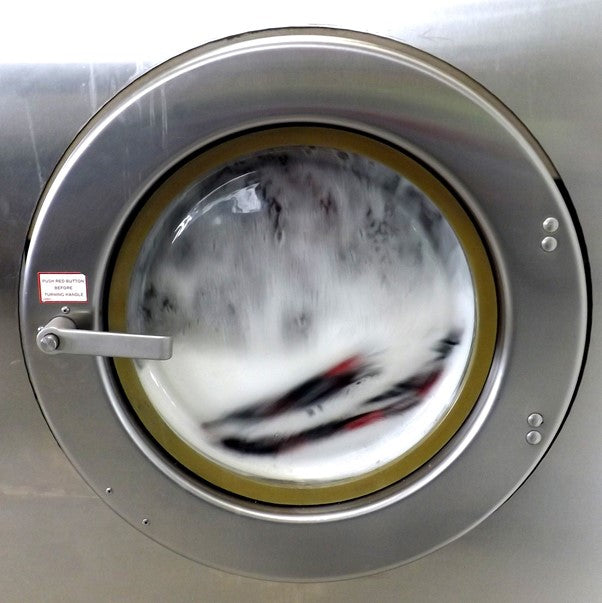Is your laundry service shortening the lifespan of your workwear?

If you want your workwear to stay in great condition and present a professional, clean and tidy employee appearance, then you might be tempted to take out a contract with an industrial laundry service.
However, when it comes to specialist workwear that has protective coatings or waterproof qualities, special attention must be given to maintaining and protecting these fabrics. Certain laundry functions can actually cause more harm than good.
Here are a few things to bear in mind when considering using laundry services for your workwear:
Protective coatings
Many pieces of workwear have special properties such as high visibility fabric or fire retardant coatings to protect the wearer from the risk of injury. These specialist coatings require specialist handling in order to maintain the structural integrity of the treated fabric. These fabrics will often need to be cleaned by a specialist laundry service which understands the role the protective coatings play in the workplace and knows how to properly handle them to increase their longevity.
High street dry cleaners often use the same processes and chemicals for all general garments bought in by the public, meaning they won’t be suitable for your specialist workwear and PPE.
Heat Stress
All fabrics can come under stress from the heat used in the cleaning process, but those with a protective coating need special attention to keep the fibres coated and in great condition. By washing workwear at the right temperature, laundries can reduce their carbon footprint while ensuring that garments aren't placed under unnecessary heat stress.
Specialist workwear laundries only tumble dry workwear until moisture is removed and no longer. This helps to prolong the life of the fabric and ensures its integrity is retained.
Chemical use
Harsh chemicals may be excellent at removing tough stains, but they do little to support the long life of workwear when regularly laundered, if the fabric and its use aren't fully understood.
One example of this is chemical repellent garments that must be given a hydrofoil treatment during the rinse process to remove dirt while protecting the coating. Finally, it must be dried in a specialist tunnel dryer at a pre-set temperature to reactivate the chemical coating so the garment is fit for purpose once more.
Failure to launder chemical repellent fabrics properly can render them useless in the workplace, so it's up to you to select an industrial laundry service that has in-depth knowledge of various workwear types if you want your garments to last as long as possible and keep the wearer safe.





